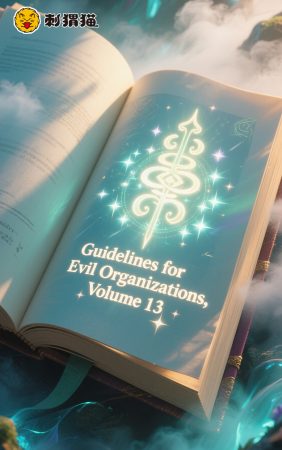Chapter 45
Our Discord Server: https://discord.gg/PazjBDkTmW
You can buy coins here to unlock advanced chapters: https://gravitytales.com/coins-purchase-page/
Chapter 45: Prussia’s Industrial Revolution
The Great Judgment of Prussia didn’t cause much of a stir internationally. Most influential newspapers only made a small mention, if any at all.
Leader One didn’t go after the Grand Aristocrat and Jungerherr. Those powerful figures had complex interests at play, both domestically and internationally, and as long as they weren’t rebelling, Leader One couldn’t touch them.
His main focus was on cleaning up the middle-class nobles known as Junkers. While this group held significant wealth abroad, their influence was mainly within Prussia and had little connection to external systems.
More importantly, as Leader One took action, an enormous wave erupted internationally – the 1837 financial crisis. It was the second capitalist economic crisis in human history. England’s industrial growth in the past decade had led to severe overproduction, triggering the crisis, while America faced economic turmoil due to confusing presidential policies at the time.
At that moment, all eyes were on England and America. Prussia? Who would care about a minor storm brewing within Prussia?
The financial settlement of the Great Judgment was still ongoing. Counting assets these days could be quite a hassle. The Ministry of Finance estimated the gains to include approximately 130,000 to 140,000 hectares of land, over 400 estates and castles, more than 40,000 luxury items like paintings and antiques, and precious metals and cash equivalent to around £2.9 to £3.5 million.
"Not as much as I had imagined," remarked Leader One as he looked over the report.
"Your Highness the Regent, this is mainly due to the financial crisis in England. Sixty-seven medium to large-sized banks in England went bankrupt, and the criminals involved in the Great Judgment may not be able to retrieve the money they had stored in England. This represents a significant financial loss for Prussia," explained Cabinet Secretary Schultz.
Since the Napoleonic Wars, Prussia has had a very good relationship with England (it means being England’s dog). So, the wealthy people in Prussia like to invest and save their assets in England. This time, the financial crisis affected many people’s interests, causing England to explode and destroy a huge amount of Prussia’s property too.
However… smart people had already predicted this crisis through inside information and safely handled their assets early. For example, the Hohenzollern family was not affected this time, and most Grand Aristocrats also came out unscathed. The ones hurt were mainly middle-class and small investors.
At the beginning of this year, Leader One received a report on England’s industrialization investigation from 1836 in the English Cabinet. It clearly stated that the excessive growth of England’s industrial system had led to severe overcapacity. At that time, Leader One knew that the bomb was about to explode.
This crisis most severely damaged heavy industries like metallurgy, shipbuilding, and mining, causing ripple effects throughout the industrial system. Over 3000 domestic businesses in England went bankrupt, leading Grand Aristocrats and big capitalists to purchase high-potential enterprises at low prices with tears in their eyes, while most unprofitable small to medium-sized enterprises were simply abandoned.
This was a good thing for Prussia. What England despised was treasure to us. Those second-hand production materials can effectively promote Prussia’s industrialization.
Cabinet Secretary Schultz proposed several constructive plans, mainly involving bribing the King and Queen of England to bypass England’s export restrictions in the industrial sector, bringing those bankrupt small to medium-sized enterprises’ used equipment to Prussia.
"Your Highness the Regent, it only takes fifteen thousand pounds to get those two to sign a special export order, then another five thousand pounds to smooth over the English Members of Parliament. Everything will be fine. If we are willing to spend more money, we might even get our hands on the latest version of the royal arsenal’s military production equipment. This is a significant opportunity for Prussia." Baron Schultz had a subtle smile on his face.
Cabinet Secretary Schultz was a powerful figure, owning shares in around 40 domestic enterprises and holding advisory or honorary director positions in over 150 companies. With Prussia seizing this opportunity, his income soared.
Baron Schultz was a spokesperson for the emerging aristocratic capitalist group in Prussia and held influence among the traditional aristocratic groups in the entire German region. He even had connections in the aristocratic circles of England, France, and Austria. Baron Schultz indeed had great abilities, and as long as he could contribute to Prussia and make money along the way, Leader One was fine with him continuing as Cabinet Secretary.
Knock knock knock.
Chief Secretary Anna of the Treasury and Chief Secretary of the Ministry of Industry entered together.
Baron Schultz glanced back, then smiled and bid farewell to the prince regent.
The eighth edition of Prussia’s industrial development plan has been finalized, with more funding this time, making the plan more comprehensive.
The comprehensive industrialization framework led by the state is being established, planning for 7 major industrial categories and 85 classifications, providing subsidies by relying on low-interest loans and lower-priced purchase of production machinery to guide private capital towards the direction set by the Ministry of Industry.
Establishment of the Prussian military-industrial complex, including six wholly state-owned enterprises: Mauser, Keluobo, Rhine Metal, Mann, and Königsberg shipyard.
Enterprises in the chemical industry, biopharmaceuticals, energy, infrastructure, and technology research and development are receiving investments and share acquisitions from the state capital.
Establishment of the Prussian Financial Regulatory Authority, strict review of the issuance of licenses for private banks, restructuring and merging of the original 16 state-owned banks and the Hohenzollern family bank, establishment of the Prussian National Bank and the Royal Bank of Prussia.
Founding of ten specialized vocational technical schools nationwide to train advanced technical personnel, establishing numerous intermediate vocational technical schools and short-term skilled training schools in the four industrial centers of Brandenburg, Rhineland, Stuttgart, and Königsberg.
Using four main industrial centers as bases, transportation infrastructure was developed outward, connecting important raw material sources and trade hubs. Two highways with a total length of 310 kilometers were built, along with the early railway transport network in Prussia.
Strict supervision was imposed on the lottery and insurance industries, with some companies being forcefully nationalized.
The world’s first child labor protection law was enacted, prohibiting children under five from working in factories, banning children under eight from engaging in high-risk industrial production, and limiting underage workers’ work hours to no more than 13 hours.
Land acquired through the Great Judgment was cautiously reformed into state-owned farms, alongside previously state-owned land and Hohenzollern family estates.
To acquire labor for industrial development, special subsidies were granted to the Junker landlord class. The first phase of emancipation for serfs, totaling 150,000 people, was initiated. Factory owners could apply based on their employment needs, with interest-free loans provided by the Prussian National Bank and the Royal Bank for serfs to buy their freedom. It was estimated that serfs could repay the loan and regain their freedom within 10-12 years after entering the factories.
In the eighth version of the Prussian industrial development plan, Leader One navigated the interests of many by easing the transition from the traditional aristocracy to the new bourgeoisie. Special subsidies, interest-free loans, and discounted purchase of production machinery were the main methods used to mitigate resistance in the course of industrialization.
The eighth edition of the industrial plan allocated fifteen percent of the budget to address opposition. Fully state-owned enterprises, joint state-owned enterprises, and privately-owned enterprises with state capital shares were only focused on key industries, while the majority of the industrial sector was left to private capital.
The Junker landlords and some nobles relying primarily on agriculture saw their interests affected. The loss of serfs and the migration of farmers to urban areas for work would inevitably lead to agricultural depression. Leader One could only provide subsidies to these landlords temporarily while waiting for advancements in agricultural machinery brought about by technological progress. Leader One emphasized his commitment to the development of the primary sector and aimed to maintain Prussia’s self-sufficiency in grain at sixty-five percent.
On January 1, 1838, Prussia embarked on comprehensive industrialization, steadily implementing various reform policies alongside industrial development. Leaving behind the past shadows, Prussia officially set foot on the path to becoming a strong nation.
In the exciting 19th century, the roaring industrial revolution was happening. In this time of rapid developments in science and technology, falling behind just one day meant falling behind a lot.
Luckily, Prussia caught the tail end of the first wave.
But at the same time, most countries in Blue Star didn’t have this opportunity. The first industrial revolution was almost coming to an end for them, with only fifteen to twenty more years left. If they completely missed the first industrial revolution, it would mean facing long-term hardships of being bullied and exploited in the future.












